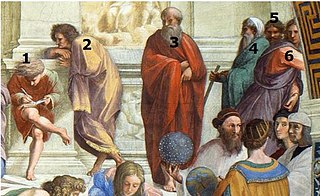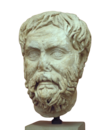Husserl & Epoche
Summaries From : https://www.proquest.com/docview/1847465599?fromopenview=true&pq-origsite=gscholar&sourcetype=Scholarly%20Journals To new researchers hoping to adopt Husserl’s way of thinking, it can be a difficult and daunting task. One of the biggest problems researchers faces is the fact that Husserl constantly changed how he described key parts of epoche, as well as reductions. There are many good guides to help researchers understand how to use phenomenological study. A problem accrues when researchers want to gain a deeper understanding of phenomenology.
Epoche suggests that we block the way to phenomena, letting go of preconceptions in the goal of true understanding. The problem becomes apparent in this fact, people assume they have dropped all bias in pursuit of epoche. They come to the false conclusion that they have let go of bias, but they have really fallen back to personal beliefs without noticing. It is a cycle of trying to get rid of bias but intern falling to other biases.
There are guides and manuals as stated earlier to help one understand these concepts. To truly understand phenomenological research, you cannot use or rely heavily on these manuals. To understand Husserl’s intentions, the researchers have to find their own way of understanding these concepts. The researcher must be able to let go of everything that makes them, them. They must become the blank slates to use the epoche as intended by Husserl.
Reduction In Epoche
Summaries From : https://link.springer.com/article/10.1007/s10746-018-09482-3 Reduction plays a significant role in Epoche and how it is understood. Many have argued that it key to understanding that everything that is not part of transcendental domain has to be broken down and reduced. The questions then arise that, is the theory of reduction worth it or justified? It is commonly understood that reduction is reducing the transcendental in immanence of consciousness. It does not explain the beginning of reductionism which causes reduction to somewhat be inside the world. Attitude changes place motivations of reductionism in the world of volition.
Reduction allows philosophers to leave the natural attitude of the ideas. It means that you can no longer be what you were. There is a paradox when it comes to reductions because its purpose is to break down the world but to break it down you must understand it. The dogma of the world comes out after the reductionism is used. Epoche is the shock for humans and destruction of the natural attitude in the world. At first a human feels strangeness of being until he becomes one with it. The combination can be rattled if a man realizes he has the burden of work, it is shown that the second movement.
The theory proposals presented, differ in several important areas, like understanding individual’s stages of reduction. Its purpose is positive meaning as it is filled with content on the foundation of certain knowledge. Epoche like this can be understood as ontologically neutral. It is an expression of negativity as it goes to preexisting and is not worldly or unworldly. Epoche makes it so we can account for nothing transcendental life that cannot be made real. It shows itself in possibilities that are unfulfilled and cannot be fulfilled.

Edmund Gustav Albrecht Husserl was an Austrian-German philosopher and mathematician who established the school of phenomenology.
In the field of epistemology, the problem of the criterion is an issue regarding the starting point of knowledge. This is a separate and more fundamental issue than the regress argument found in discussions on justification of knowledge.

Phenomenology is a philosophical study and movement largely associated with the early 20th century that seeks to objectively investigate the nature of subjective, conscious experience. It attempts to describe the universal features of consciousness while avoiding assumptions about the external world, aiming to describe phenomena as they appear to the subject, and to explore the meaning and significance of the lived experiences.
In philosophy, a noumenon is knowledge posited as an object that exists independently of human sense. The term noumenon is generally used in contrast with, or in relation to, the term phenomenon, which refers to any object of the senses. Immanuel Kant first developed the notion of the noumenon as part of his transcendental idealism, suggesting that while we know the noumenal world to exist because human sensibility is merely receptive, it is not itself sensible and must therefore remain otherwise unknowable to us. In Kantian philosophy, the noumenon is often associated with the unknowable "thing-in-itself". However, the nature of the relationship between the two is not made explicit in Kant's work, and remains a subject of debate among Kant scholars as a result.

Pyrrho of Elis was a Greek philosopher of Classical antiquity, credited as being the first Greek skeptic philosopher and founder of Pyrrhonism.
Ancient Greek philosophy arose in the 6th century BC. Philosophy was used to make sense of the world using reason. It dealt with a wide variety of subjects, including astronomy, epistemology, mathematics, political philosophy, ethics, metaphysics, ontology, logic, biology, rhetoric and aesthetics. Greek philosophy continued throughout the Hellenistic period and later evolved into Roman philosophy.

Arcesilaus was a Greek Hellenistic philosopher. He was the founder of Academic Skepticism and what is variously called the Second or Middle or New Academy – the phase of the Platonic Academy in which it embraced philosophical skepticism.
Aenesidemus was a 1st-century BC Greek Pyrrhonist philosopher from Knossos who revived the doctrines of Pyrrho and introduced ten skeptical "modes" (tropai) for the suspension of judgment. He broke with the Academic Skepticism that was predominant in his time, synthesizing the teachings of Heraclitus and Timon of Phlius with philosophical skepticism. Although his primary work, the Pyrrhonian Discourses, has been lost, an outline of the work survives from the later Byzantine empire, and the description of the modes has been preserved by a few ancient sources.

Sextus Empiricus was a Greek Pyrrhonist philosopher and Empiric school physician with Roman citizenship. His philosophical works are the most complete surviving account of ancient Greek and Roman Pyrrhonism, and because of the arguments they contain against the other Hellenistic philosophies, they are also a major source of information about those philosophies.
Philosophical skepticism is a family of philosophical views that question the possibility of knowledge. It differs from other forms of skepticism in that it even rejects very plausible knowledge claims that belong to basic common sense. Philosophical skeptics are often classified into two general categories: Those who deny all possibility of knowledge, and those who advocate for the suspension of judgment due to the inadequacy of evidence. This distinction is modeled after the differences between the Academic skeptics and the Pyrrhonian skeptics in ancient Greek philosophy. Pyrrhonian skepticism is a practice of suspending judgement, and skepticism in this sense is understood as a way of life that helps the practitioner achieve inner peace. Some types of philosophical skepticism reject all forms of knowledge while others limit this rejection to certain fields, for example, knowledge about moral doctrines or about the external world. Some theorists criticize philosophical skepticism based on the claim that it is a self-refuting idea since its proponents seem to claim to know that there is no knowledge. Other objections focus on its implausibility and distance from regular life.
Pyrrhonism is an Ancient Greek school of philosophical skepticism which rejects dogma and advocates the suspension of judgement over the truth of all beliefs. It was founded by Aenesidemus in the first century BCE, and said to have been inspired by the teachings of Pyrrho and Timon of Phlius in the fourth century BCE.
Agrippa was a Pyrrhonist philosopher who probably lived towards the end of the 1st century CE. He is regarded as the author of "The Five Tropes of Agrippa", which are purported to establish the necessity of suspending judgment (epoché). Agrippa's arguments form the basis of the Agrippan trilemma.

Quietism in philosophy sees the role of philosophy as broadly therapeutic or remedial. Quietist philosophers believe that philosophy has no positive thesis to contribute; rather, it defuses confusions in the linguistic and conceptual frameworks of other subjects, including non-quietist philosophy. For quietists, advancing knowledge or settling debates is not the job of philosophy, rather philosophy should liberate the mind by diagnosing confusing concepts.
Bracketing means looking at a situation and refraining from judgement and biased opinions to wholly understand an experience. The preliminary step in the philosophical movement of phenomenology is to suspend judgment about the natural world and instead, to focus on analysis of experience. Suspending judgement involves stripping away every connotation and assumption made about an object. Its earliest conception can be traced back to Immanuel Kant who argued that the only reality that one can know is the one each individual experiences in their mind. Edmund Husserl, building on Kant’s ideas, first proposed bracketing in 1913, to help better understand another’s phenomena.
Hellenistic philosophy is Ancient Greek philosophy corresponding to the Hellenistic period in Ancient Greece, from the death of Alexander the Great in 323 BC to the Battle of Actium in 31 BC. The dominant schools of this period were the Stoics, the Epicureans and the Skeptics.
Western philosophy refers to the philosophical thought, traditions and works of the Western world. Historically, the term refers to the philosophical thinking of Western culture, beginning with the ancient Greek philosophy of the pre-Socratics. The word philosophy itself originated from the Ancient Greek philosophía (φιλοσοφία), literally, "the love of wisdom" Ancient Greek: φιλεῖν phileîn, "to love" and σοφία sophía, "wisdom".

Phenomenology within sociology, or phenomenological sociology, examines the concept of social reality as a product of intersubjectivity. Phenomenology analyses social reality in order to explain the formation and nature of social institutions. The application of phenomenological ideas in sociology, however, is not reduced to the notion of the "Lifeworld", nor to "grand" theoretical synthesis, such as that of phenomenological sociology.
Benson Mates was an American philosopher at the University of California, Berkeley, noted for his work in logic, the history of philosophy, and skepticism.

Academic skepticism refers to the skeptical period of the Academy dating from around 266 BCE, when Arcesilaus became scholarch, until around 90 BCE, when Antiochus of Ascalon rejected skepticism, although individual philosophers, such as Favorinus and his teacher Plutarch, continued to defend skepticism after this date. Unlike the existing school of skepticism, the Pyrrhonists, they maintained that knowledge of things is impossible. Ideas or notions are never true; nevertheless, there are degrees of plausibility, and hence degrees of belief, which allow one to act. The school was characterized by its attacks on the Stoics, particularly their dogma that convincing impressions led to true knowledge. The most important Academics were Arcesilaus, Carneades, and Philo of Larissa. The most extensive ancient source of information about Academic skepticism is Academica, written by the Academic skeptic philosopher Cicero.
Buddhist thought and Western philosophy include several parallels.







